Question And Answer
Publications
Articles, publications, books, tools and multimedia features from the U.S. Institute of Peace provide the latest news, analysis, research findings, practitioner guides and reports, all related to the conflict zones and issues that are at the center of the Institute’s work to prevent and reduce violent conflict.
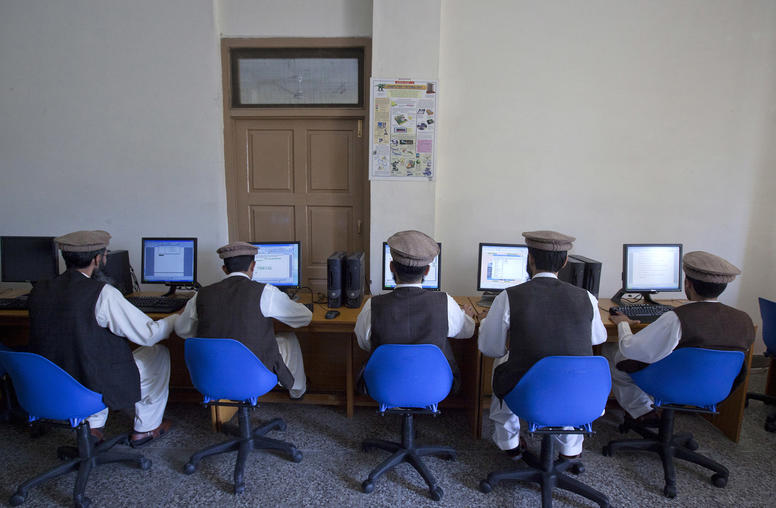
Understanding Pakistan’s Deradicalization Programming
Pakistan has struggled with Islamic militancy since the rise of the mujahideen in the 1980s. In the late 2000s, the Pakistan Army began establishing rehabilitation centers in the Swat Valley in an effort to deradicalize former Taliban fighters and other militants and reintegrate them into their communities. This report contrasts Pakistan’s deradicalization approach with the community-based program used in Denmark and the widely different prison-based program used in Saudi Arabia, and identifies areas in which the army’s approach could benefit from more extensive partnering with civilian-based organizations.
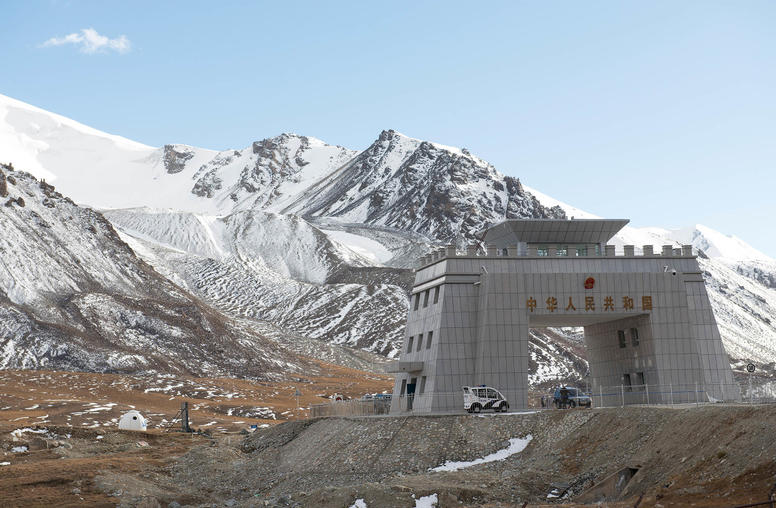
Strategic Implications of the China-Pakistan Economic Corridor
Great power politics is resurgent in South Asia today. China’s growing military ambition in the region is matched in financial terms by its Belt and Road Initiative, the largest and most advanced component of which is the China-Pakistan Economic Corridor. What remains unclear is how the United States should navigate the new dynamic. This report, which is based on research and consultations with experts worldwide, addresses the question of how the India-Pakistan rivalry will play into the emerging great power competition.
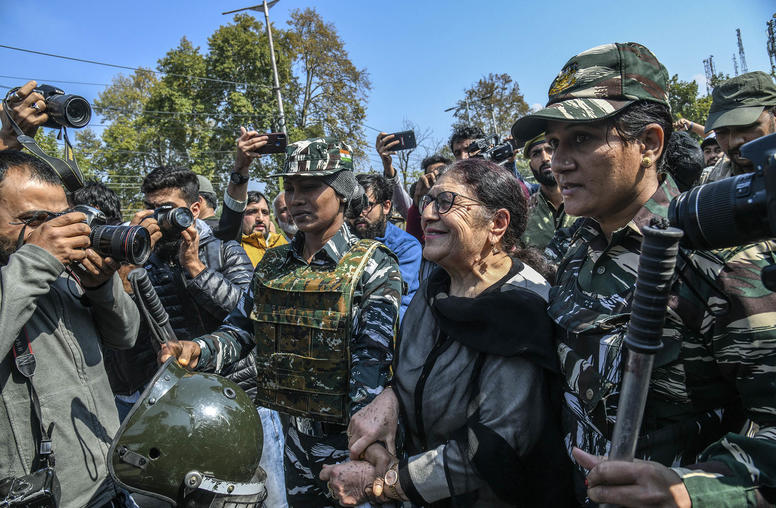
Kashmir’s crisis simmers dangerously: Attention is needed.
Conflicts centered on Syria, Iran and Saudi Arabia have seized recent global attention, overshadowing the dangerous escalation of the crisis in Kashmir. India’s government in August abrogated the political autonomy of the portion of Kashmir that it governs. To suppress protests, India has had to maintain a severe lockdown—effectively, a form of military rule—over more than 7 million people in the Kashmir valley. While India and Pakistan have avoided military clashes over this spike in their 62-year dispute over Kashmir, Dr. Mujibur Rehman, a scholar on Indian politics at New Delhi’s Jamia Millia Central University, says the international community should organize a high-level factfinding mission to reduce the risk of greater violence.
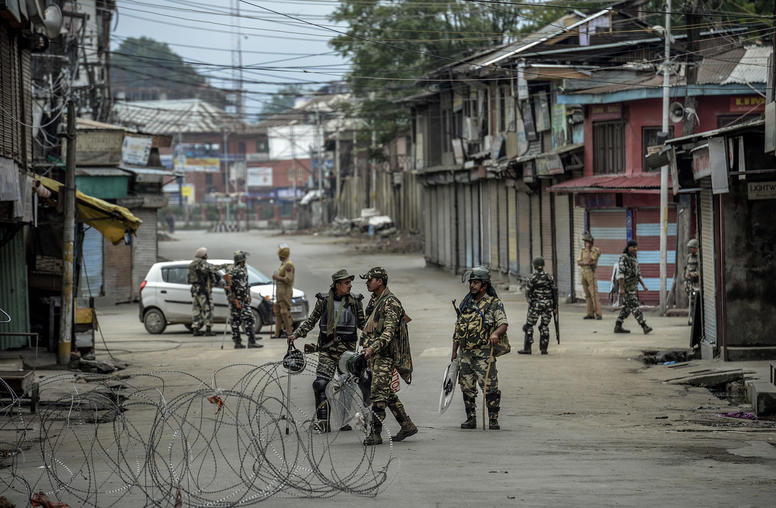
The Latest Kashmir Conflict Explained
USIP Jennings Randolph Fellows Dr. Tara Kartha and Ambassador Jalil Jilani look at the latest crisis in Kashmir from their respective views. Dr. Kartha was a member of India’s National Security Council for 15 years and has over 30 years’ experience in national security policy. Amb. Jilani, a career Pakistani diplomat, is a former ambassador to the U.S. and former foreign secretary. This post represents the views of the authors and not those of USIP.
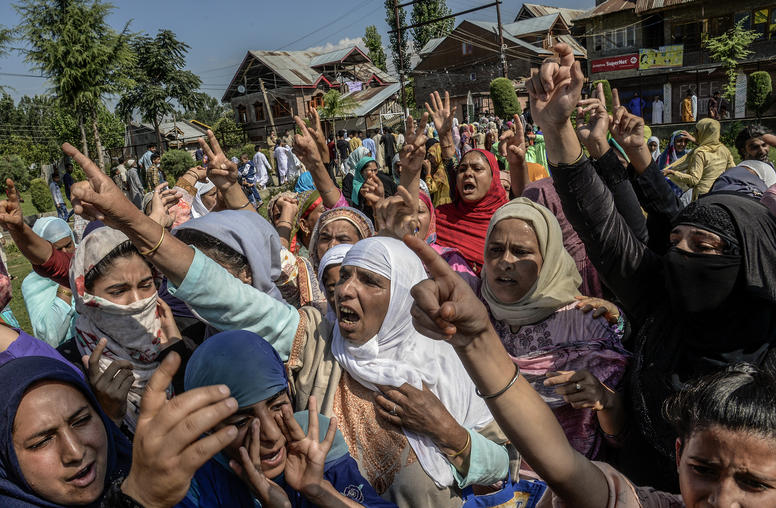
Kashmir Crisis Raises Fear of Intensified India-Pakistan Conflict
Last week, India made a controversial decision to revoke the special status of the disputed region of Kashmir and sent thousands of troops to quell any potential unrest. The Muslim-majority territory has been a major source of tension between India and Pakistan since it was partitioned between...

Moeed Yusuf on Imran Khan’s Visit to Washington
Following Khan’s visit with President Trump, Moeed Yusuf says that the two leaders appear to have a chemistry that could improve U.S.-Pakistan relations. Although the two countries have been at odds over the Afghan conflict, Yusuf says Trump and Khan indicated they would “work together to find ways to break the impasse on Afghanistan.”
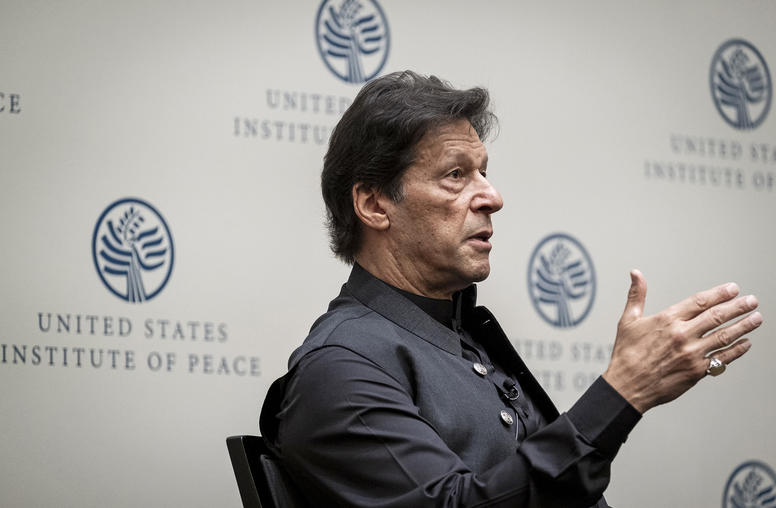
Pakistan’s Leader Vows to Press Afghan Taliban to Join Talks
Pakistan’s Prime Minister Imran Khan vowed to return home from his first official trip to Washington and meet leaders of the Afghan Taliban to persuade them to drop their rejection of peace talks that include the Afghan government. Khan spoke to an audience of U.S. policymakers, scholars and diplomats at the U.S. Institute of Peace following talks with President Trump in his first visit to the United States as prime minister. Khan discussed his meeting with Trump and hopes for an improved relationship with the United States, as well as Pakistan’s struggles with corruption and poverty, and relations with its neighbors.
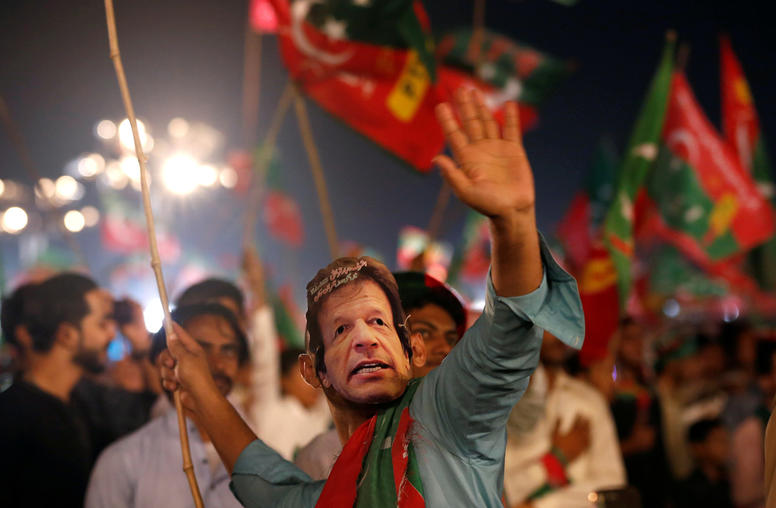
Exposure to Violence and Voting in Karachi, Pakistan
Pakistan’s 2018 elections marked just the second time in history that power transferred peacefully from one civilian government to another after a full term in office. Although the initial months of campaigning were relatively free of violence, the two weeks before polling were dangerous for campaigners and voters alike, and the elections provided a platform for some parties to incite violence, particularly against Pakistan’s minority sects. This report provides a deep examination of how exposure to political violence in Pakistan’s largest city affects political behavior, including willingness to vote and faith in the democratic process.

Vikram Singh on Hong Kong and India-Pakistan
Massive unrest has hit Hong Kong, as citizens protest an extradition law they believe is favorable to China. Vikram Singh says protesters’ fear that Beijing is working to undermine Hong Kong’s longstanding judicial independence. Looking at India and Pakistan, Singh says that the chances for meaningful dialogue right now are small, as both countries focus on their own issues.
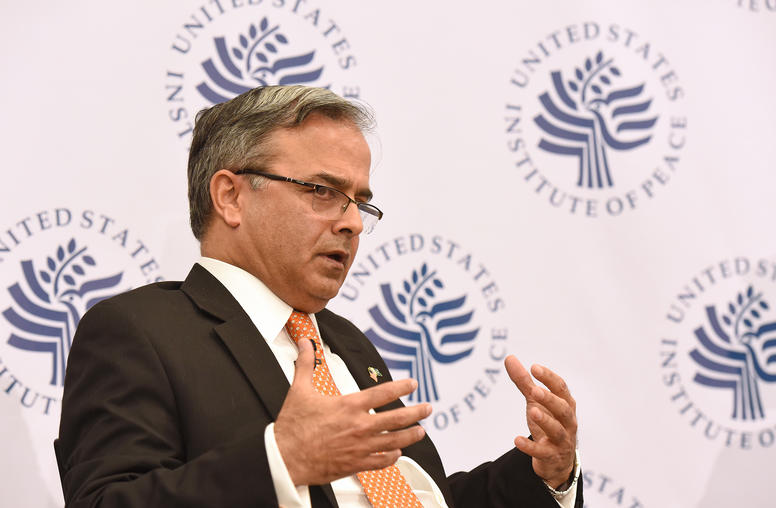
Pakistan Envoy Speaks on India, Terrorism and Afghan Peace
Echoing his country’s leaders, Pakistan’s new ambassador to the United States, Asad Majeed Khan, affirmed that his government will take an across-the-board approach to controlling extremist groups without regard for their particular cause or connections.